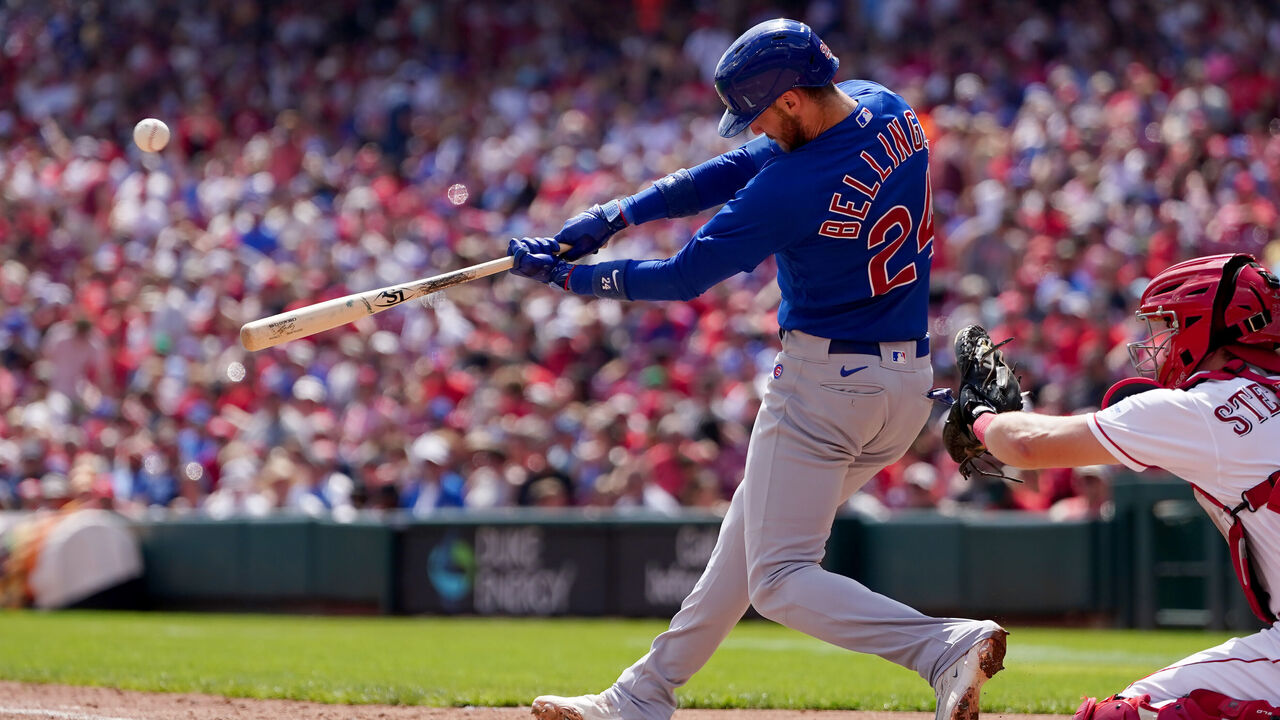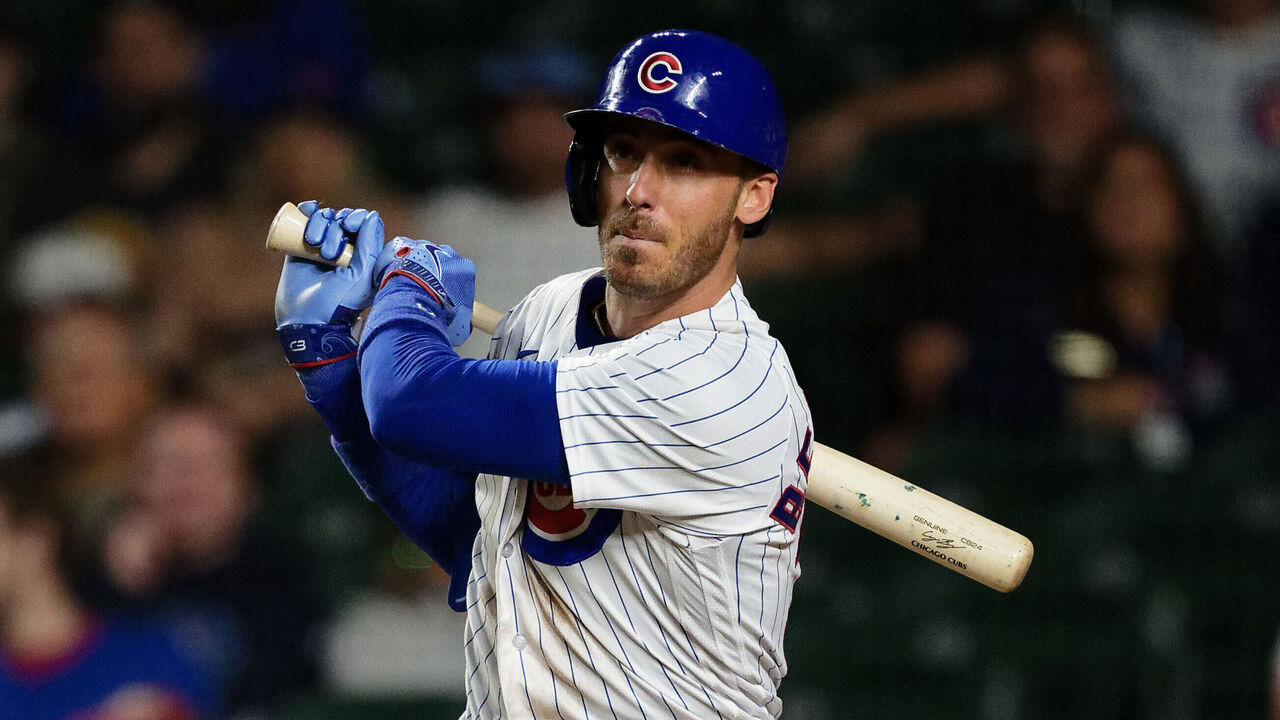Cubs benefit from market's lack of faith in Bellinger 2.0
The last time agent Scott Boras took a free-agent client this deep into the offseason before signing - one who was under 30 and a left-handed hitting former MVP - was Bryce Harper in 2019. Harper and Boras waited out the market 123 days into the offseason and landed a $300-million contract with the Philadelphia Phillies.
Cody Bellinger wasn't expected to get Harper money this offseason, but the expectation was that the 28-year-old would earn more than what was revealed when he re-signed with the Chicago Cubs on Sunday, the 116th day of this offseason.
The three-year, $80-million deal represents an incredible windfall for any athlete. If Bellinger exercises his opt-out after the first or second year, there's potential for even more.
But the forecasts made by analysts who study these things expected more.
Although Boras often beats market expectations, Bellinger signed for a 45% discount compared to what FanGraphs' crowdsourced estimates predicted (six years, $144 million) at the start of the offseason. Generally, the crowd is pretty accurate. MLB Trade Rumors predicted a 12-year, $264-million pact for Bellinger. Boras initially sought more than $200 million.
Even in this slow-developing offseason, teams will still submit YOLO bids for superstars. We saw that with the frenzy over Shohei Ohtani and Yoshinobu Yamamoto. FanGraphs ranked Bellinger as its No. 3 free agent; MLB Trade Rumors had him No. 2. However, teams didn't view Bellinger the same way. With Bellinger, there was doubt. Too much doubt, perhaps.
Because of that uncertainty, the Chicago Cubs are rewarded with a relative bargain.

Why so much doubt?
Skepticism remained even after his 2023 bounce-back season when he posted a .307/.356/.525 slash line with 26 homers, 20 steals, and a 4.1 fWAR.
One big question hovering over the campaign: Did underlying skills support Bellinger's rebound?
His raw power numbers have declined since he injured his shoulder in the 2020 postseason and required surgery.
Bellinger followed the surgery by producing the worst campaigns of his career, batting .165 in 2021 (minus-1.0 WAR) and .210 in 2022 (1.8 WAR).
When he blasted 47 home runs during his 2019 MVP season, he also posted a career-best 91.1-mph average exit velocity. But from 2020-22, Bellinger averaged 89 mph, and it dipped to a career-low 87 mph last year.
That ranked in the 22nd percentile of all hitters. In 2019, he sat in the 83rd percentile.
Those Statcast trends scare teams.
Bellinger also hasn't smacked a ball harder than 110 mph since injuring his shoulder, a far cry from his max exit velocities of 113 mph in 2017 and 2018.
But Statcast data isn't everything. And there are a couple of factors that make them matter a lot less in Bellinger's case.
Bellinger is one of the best at launching balls into the air to his pull side. Why does that matter? For starters, it's easier to homer to the pull side. The fences down the line are closer to home plate. A hitter's top power is also typically tied to his pull side. Hitters who can produce pull-side balls in the air have a great advantage.
Last season, Bellinger ranked in the 89th percentile of hitters in his ability to hit line drives and fly balls in the air to his pull side, doing so in 14.9% of his at-bats. He's done this consistently throughout his career.
This is how players like José Ramírez, Jose Altuve, and Mookie Betts added power to their games despite lacking elite Statcast data.
Cody Bellinger: First hit, first home run in a Cubs uniform 🐻
— FOX Sports: MLB (@MLBONFOX) April 3, 2023
(via @Cubs)pic.twitter.com/beEiZTB2jm
The other issue is that Bellinger intentionally lowered his exit velocities by changing his two-strike approach last year.
Bellinger hit .276 with two strikes during the previous campaign, the 14th-best mark in the majors and 76% better than the league average.
For comparison, he hit .141 with two strikes in 2022, 33% below the league average. His mark was .133 in 2021.
Bellinger has always tinkered with his swing. Last campaign, he posted the best zone contact rate (87.4% vs. 80.9% career average) and overall contact rate (81.2% vs. 75.5%) of his career.
He went from striking out 47.2% of the time when reaching two strikes in 2022 to just 30.1% last season, another career best.

Bellinger's drop in average exit velocity paid for his emphasis on contact. His 86.2-mph exit velocity with two strikes was 2.6 mph slower than the next lowest reading. But it allowed him to make the rare improvement of adding contact skills while boosting his power numbers closer to his early career marks.
One thing that remains unchanged in Bellinger's profile is his versatility in the field.
He split his time between first base and center field last year, as he's done throughout his career - a highly unusual kind of versatility. He rates as an above-average defender at either position by defensive runs saved.
Bellinger also stole 20 bases in 26 attempts, and his sprint speed remains above average.
During a time of so many platoon players - especially left-handed hitters being benched against left-handed pitchers - Bellinger played in 89% of the Cubs' games against right-handed starting pitchers last season and 89% of their games against left-handed pitchers.
He owns a 124 wRC+ versus righties for his career and a 109 mark against lefties.
Bellinger was one of the rare players in this free-agent class who could help a team with his bat, glove, and legs without needing to be platooned. He's also young enough that the risk of falling off an aging cliff is still low.
It didn't help that Bellinger turned down a qualifying offer, which meant the team signing him had to surrender draft pick and bonus-pool compensation based on the size of any contract he signed. But for a team like the Toronto Blue Jays, adding Bellinger at less than $100 million guaranteed would have made a lot of sense.
There was too much fear in the market regarding Bellinger and not enough belief in what he could do and how he could get the most out of his physical tools.
Travis Sawchik is theScore's senior baseball writer.